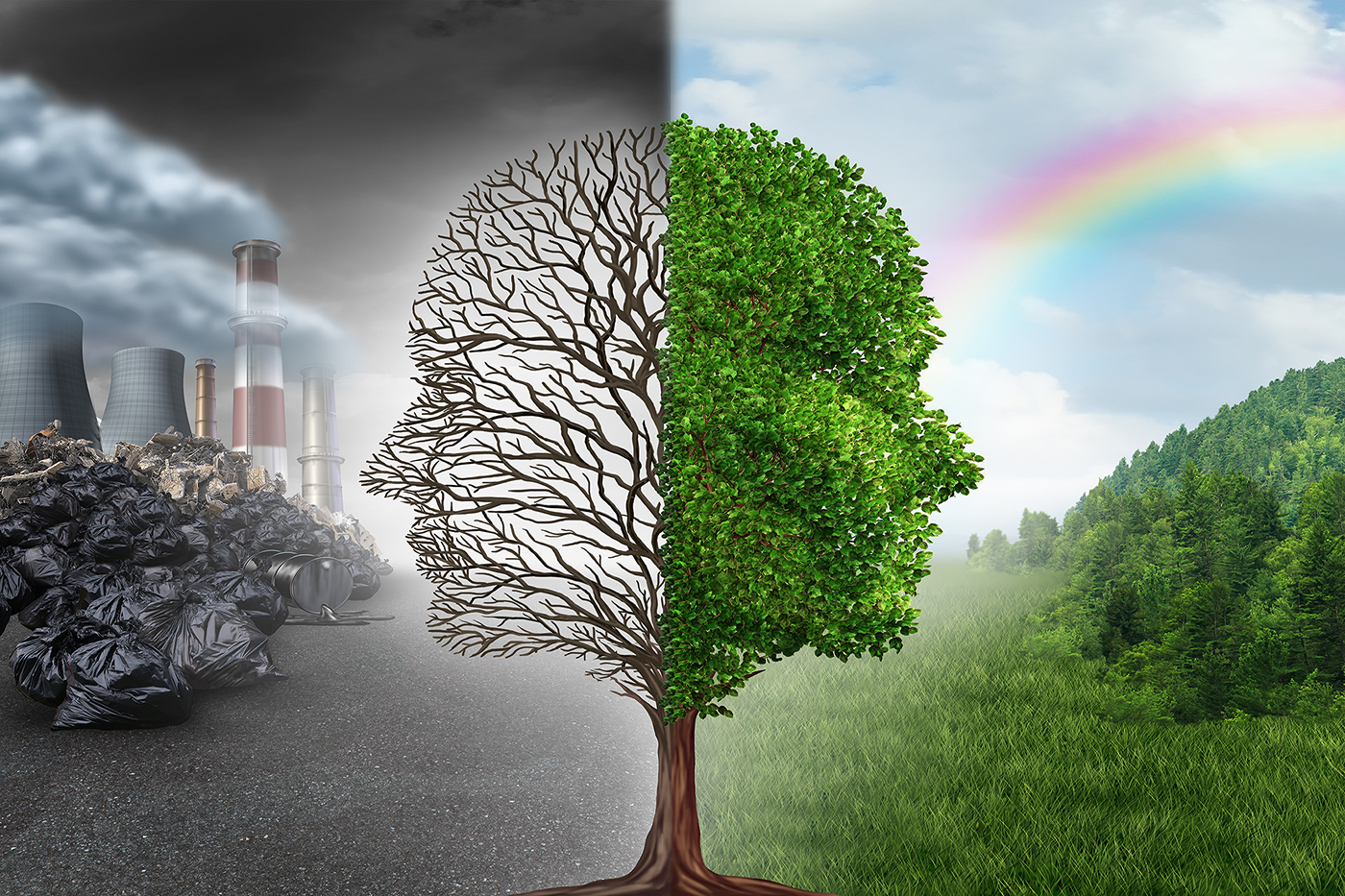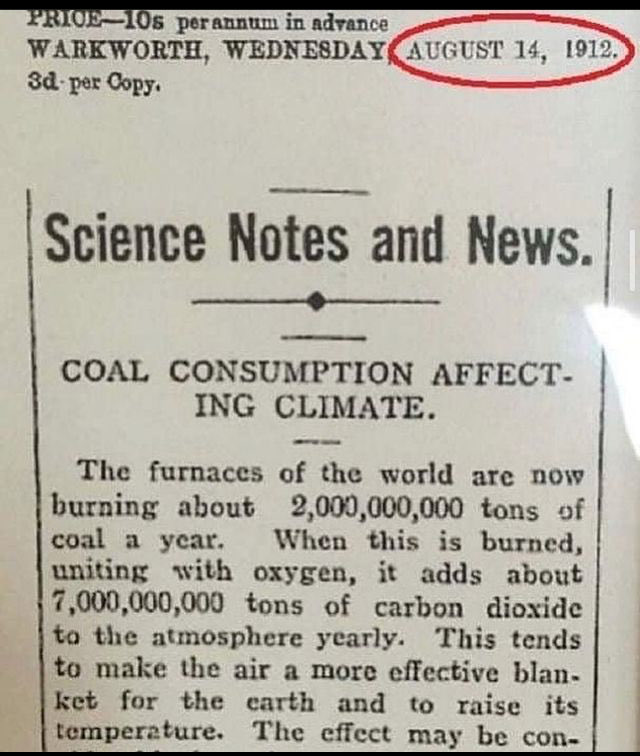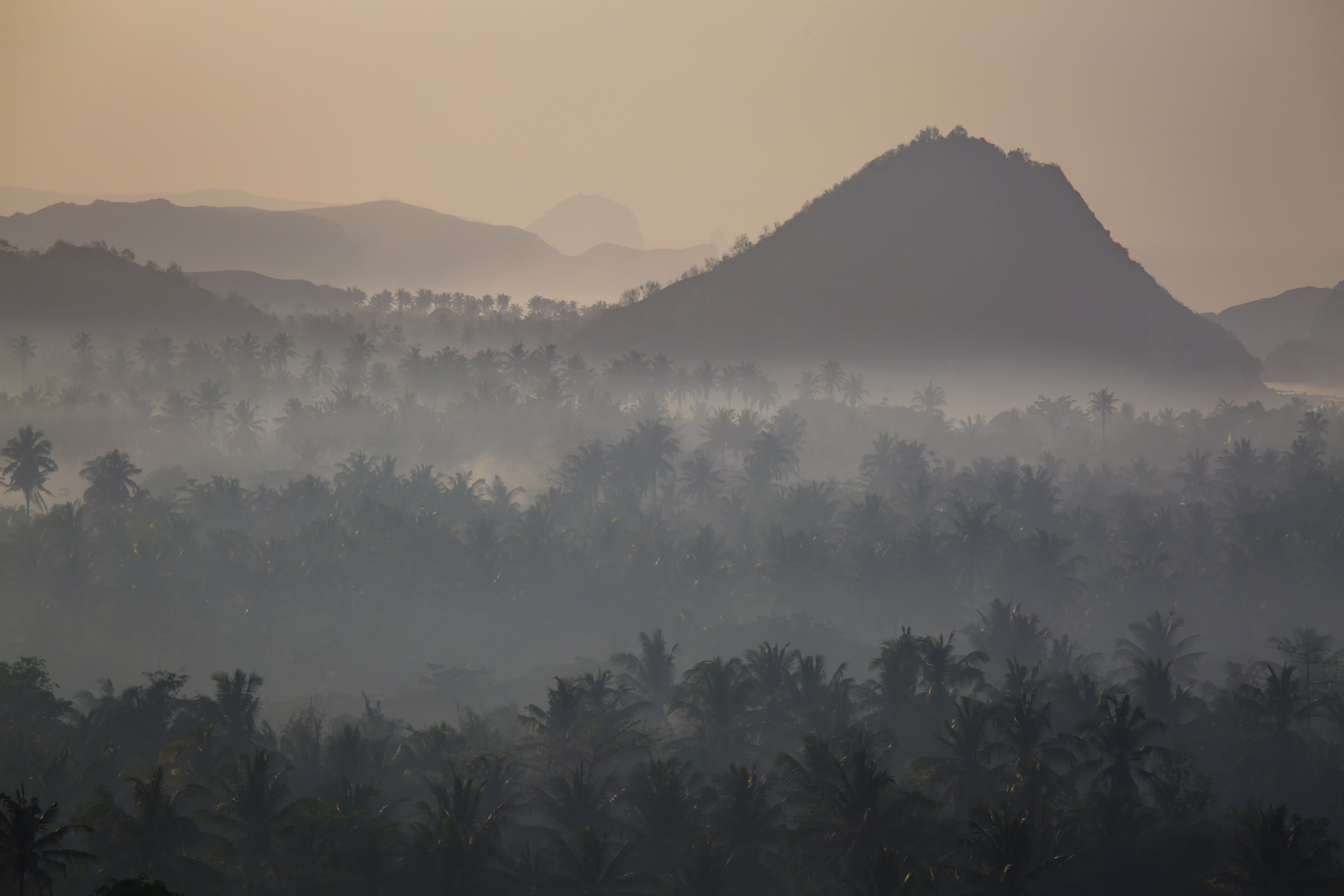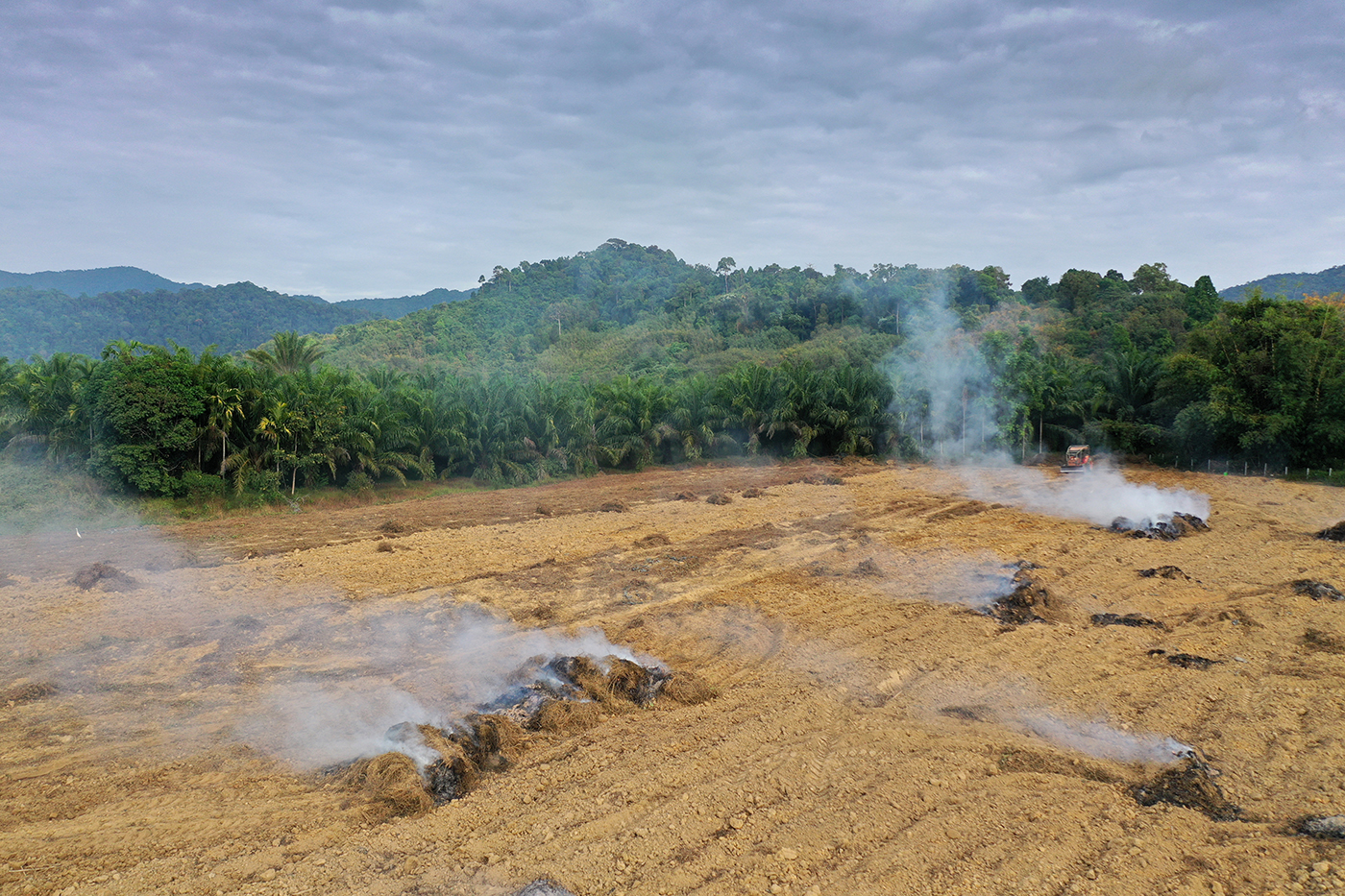The Alien Concepts of Change
As our planet is hurtling towards a climate catastrophe we're going to have to make some pretty drastic changes. What follows many will lambast and say "Impossible" but in reality it may be things along these lines that will need to be considered, and this is just the tip of the iceberg.
Change is a word we hear a lot these days. "Climate Change" "Change for the better" "Change for a cuppa, Guv?". In a way it addresses something that isn't right, something that needs, well, to change. In the context of climate change it also brings up the need for change, for change to be made on our human part. I was born in 1965, yeah a bit of an older duffer. In my lifetime we've seen some pretty amazing things. Men walking on the moon, the advent of color television, untold bounds in computing and then through to my preferred realm of cameras and video technology. Man we were on a roll back in the 60's. Kevlar in 1965 followed by medical marvels that allowed for Mammogram checks in women, handheld calculators came along in 1967, only for those with infeasibly big hands though! And then of course came the building blocks for the Internet! Cell phones, Walkmans, CD Discs, Video Games, Fiber Optics, MRI Scanners, Personal Computers, and still it all kept coming.
The World as we knew it was changing from print and sound to imagery and vision. We always knew wars were bloody affairs, and yet now here in color we could see it in all it's gritty and harrowing reality. I sped through the 70's and into the 80's. A time of over indulgence by all. Technology had allowed man to travel further, faster and with augmented safety. In the same vein fishermen could now chase and locate their quarry aided with computers and 'fish finders', their hauls were immense, and continuous. Man went on to develop machines, big ugly diesel machines that belched black clouds of carbon into the air every time their motors turned. By general consensus of the man in the street, and because he didn't know any better, that was OK, once it dissipated it was gone, no harm, no foul. And so they drilled into the earth, deeper, faster and with greater precision aided and abetted by seismic technology that pinpointed their black gold, their oil and their coal. They perfected the extraction process all the while with scant regard for what they were knowingly doing to Planet Earth, after all they were simply programmed to seek out more and more profits for their insatiable shareholders.

Transitioning from where we are to where we should be will take a monumental effort, by all.
Things started to fracture. As activists and concerned entities started delving deeper into issues that bothered them they started to peel back the insidious sheen of consumerism. As human demand grew for the luxuries we were starting to take for granted so were the injustices in the supply chains becoming increasingly visible. Child labor being used in numerous top line brand product manufacturing, the suffering of animals to supply food for an exploding global population. Uprisings against the Fur trade were one of the most vivid memories I have from my childhood as back then activists would be found in town centers at weekends with placards festooned with horrendous photographic imagery of the suffering to supply fashion houses with fur. People started raging against the Foie Gras industry and the hideous force feeding practices to which the Geese would be subjected to. All in order to artificially accelerate the growth of their liver to a point of almost rupture before that was harvested for elite circles to munch down on with their ridiculously overpriced branded crackers. In my lifetime I've seen a doubling of the human population in what has been a period of thus far unsurpassed and exponential human growth. It seems like the planet, with its finite resources has always been expected to maintain a pace with that. Something had to give, and giving it is. It's currently in the throes of giving up...

Another key phrase we've been hearing of late is 'Tipping Point'. Mother Nature, Climate, Wildlife, Life on Earth, all these categories at some time or other in the recent past have been introduced as being either close to or, more worryingly, at their tipping point. A point from which decline, once passed, would be nigh on impossible to recover from. These, for the most part have been driven by the increasing temperatures our planet is experiencing. In any careful evolutionary process there are allowances in time for wildlife, vegetation and landmass to adapt to a naturally fluctuating range of temperatures. These were seen as seasonal variations and for the most part our planet, its environments and supported species, would bend and release with the ebb and flow between the ranges of these acceptable meteorological parameters.
Everything that man(kind) has ever done in his endeavors for more has relied on one thing, energy. Whether that came from Oil or Coal the one constant was an incessant need to increase production to meet, store and surpass demand. Mining companies perfected extraction and refining processes with abandon, and yet even over 100yrs ago the warnings were being reported. In 1912 this short piece was published in the New Zealand based Rodney and Otamatea Times, Waitemata and Kaipara Gazette. When it first appeared on a Facebook page back in 2016 its authenticity was questioned. One can find it within the National Library of New Zealand National with a simple search.
It seemed even back then people paid it no second thought. It was after all just a few lines, on page Seven of the Newspaper. In fact through the years the acceleration of mining activities and fossil fuel extractions have, alongside the industries they spawn such as the personal automobile sector, transportation and exploration exacerbated the over-saturation of Carbon Dioxide levels in our atmosphere. This has in turn created an almost insulating effect similar to wrapping our planet in an electric blanket with the temperature selection dial locked at maximum. Our planet is heating up at a rate previously unmatched in history. The level of Carbon Dioxide in our atmosphere is similarly now at a level previously unmatched in recorded history. Compared to pre-industrialized times our planet is fast approaching a temperature variation of +1.5deg Celsius. But that's not much, right.
Our planet and the creatures that call it home exist in a natural state of balance, this is controlled by the nature of things, 'Mother Nature' call it what you will. Any outside influence changing that balance sets in motion a chain reaction of events that simply steamroll out of control. Take if you will Sea Turtles. As our planet heats up so does the temperature of the beach sands. These fluctuating temperatures have an influence on the sex of the turtle embryos developing in the clutches of eggs released into the sand by female turtles. At sand temperatures of 31.1c only female turtles are born. For Male turtles to be born they prefer a slightly cooler mean sand temperature of 27.8deg celsius and below. It stands to reason, with a hotter planet we get warmer sand, over time we only get female turtles being born, with no males to fertilize eggs and continue the species we'll find ourselves saying "adios" to one of the Oceans most iconic of species. And we're fast approaching that. This is just one example of how the existence of one species depends on the natural balance of things. It also highlights what may happen if man(kinds) influence on the global climate is allowed to continue, there are thousands of similar natural history based scenarios.
And what is our response? Nothing. We keep on trucking, life as normal. Sadly, as a collective, we've become a species so used to the luxuries that are now entrenched as part of our lives that we simply cannot imagine a life without them. It's through the reality of scenarios where it's cheaper for a consumer in England to buy a Pound of Apples from France than it is to visit his local apple farmer 2miles down the road that drive this insane situation home. Luxury and 'must have' commodities are shipped and trucked between continents to feed the avarice of man on a daily basis, we just cannot expect the planet to keep up with it all. We need to change, and we need to change now. But what is change?
For those of you born since 1980 it would mean adjusting to a life without many of the commodities that you've evolved into accepting as being an integral aspect of your diet and lifestyle. Many of the changes will seem dramatic, alien in concept if you will. The sad reality is that if people cannot accept or make the change that is needed things are only going to get worse. As a species we need to divest, remove our investments, from fossil fuels. The whole process of mining and drilling for them injects so much damage to our atmospheres that it is driving climate change. The massive floods that are becoming so common, the droughts, the acidification of our Oceans and dangerously toxic air in a growing number of metropolitan areas around the world are all in a very positive uptick in frequency.

The natural balance of things. The northern hills of Lombok Island, Indonesia. Early morning light and sounds from a fast disappearing natural enclave. ©seawildearth
We need to wean ourselves off of our taste for luxury food items that are not native in their presence or farmed within our geo-specific region. To put it simply we need to adjust our diets to the food items that can be grown within our own geographic location. As man(kind) did for millennia prior to the industrial revolution. Look at the Palm Oil debate for example. Native to Africa and introduced to Indonesia and Malaysia in the late 1800's by European settlers Palm Oil was developed to satiate a desire for a cheaper cooking oil for mankind. As its popularity grew derivatives from it were seen to be, and adopted as, suitable and cheaper ingredients for a wide range of both edible and utilitarian products. It's cheaper by far than other Oils and to date derivatives from it are found in a range of products from breakfast cereals to soaps, cosmetics, shampoos, bread, instant noodles, chocolate, margarine and on, and on, and on. It has become such a diverse commodity that appears in so many products, many of which we wouldn't even necessarily associate with oil.
Palm Oil Plantations have sprung up throughout Malaysia and Indonesia given their climates are ideal for the cultivation of the raw materials. Mixed with the ruthless business practices at the onset of the Palm Oil boom it led to huge tracts of tropical forests being cleared to make way for the plantations. In many areas the needs of the indigenous peoples were pushed aside. Land grabs became the norm. Lands that were traditionally used to cultivate and supply the needs of localized populations with a diverse breakfast basket of produce were cleared in favor of a monoculture that didn't serve the locals. Produce from the plantations wasn't destined for their tables. More it was destined to feed an international array of conglomerate food manufacturers, some of the biggest names in the industry.
I recently watched this harrowing video of an Orangutan trying to fight off a bulldozer that was being used to clear its forest home. While such images are becoming less common, it's not to say that that is no longer happening, it could well be that it's just better camouflaged. Given the yield of Palm Oil is seen to be as ten times that of competing oil yielding products it is suggested that if the Palm Oil industry were to halt it would lead to greater deforestation. This suggestion comes from the simplistic model based on comparative yield equivalents from other oil bearing products such as Rapeseed, Sunflowers or Coconuts. My counter to that would be that our technological prowess as defined by the numerous accomplishments of man, an alternative could be found and generated synthetically. There is also enough land, outside of populous tropical jungle locations where such crops could be cultivated. It all boils down to whether man wants to make that commitment. It seems he does not. At this time he is simply just too comfortable.
Alas as always it's my opinion that the driving force is money. Why would an established industry, irrespective of its damaging footprint, embrace change given the massive financial outlay to make that change? If their infrastructure from growth to end user consumption is in place, why change? The loss of a few species here and there means nothing to them. It's the bottom line that counts, and this is just one dubious industry, there are many others.

Forests being cleared for Palm Oil Plantation in Indonesia.
Everything we're doing with our demands for more is damaging our planet to a point beyond which we will soon no longer be able to recover from. This could simply be based on the sheer volume of people making those demands. In the year of my birth there were 50% less people on Earth. 50% less mouths to feed, clothe and house. Now I'm not saying that we are the problem per se, but what I am saying is that our demands are simply disproportionate as to what our planet can easily supply. In our greed we have crashed numerous food reserves. Fish stocks have plummeted. Wildlife is going extinct at record pace due in part to the demand for their traditional environments being cultivated for food supply. And this food supply tends not to be for the needs of the impoverished indigenous peoples of the regions from whence these products hail but more for the insatiable demands of first world nations.
As a species we have to arrive very soon at a point where we recognize the problem, understand the implications and say "No more". We have to arrive at a point in time where we make the realization that we've taken all we can take. Business has to understand that profits can no longer be chased without end. It would be better for all businesses to adjust business models to target potential profits at a National level instead of an International one. There needs to be a cap on how much people can individually earn, and own. Why does one man deserve one Billion dollars when there are one billion people without a dollar? It's a perverse reality in these current times. While I'm not suggesting adopting a socialist style of living I am saying that we have to set our goals more realistically based on what our Planet can provide without undue stress. A life without fossil fuels and the associated products and technologies it spawns may seem like the mumblings of a wild man but it's a decision along those lines that we will as a species soon have to make. There are alternatives, big industries however are simply not willing to go to the expense of divesting from their existing models while their profits continue to pour in. They have no future vision, and what does that say to the generations of tomorrow?
So I guess at the end of the day it's down to the masses to demand change. I'll leave you with one sobering thought. The earth is bombarded in the course of just one hour with enough solar energy to power it for one year! To check out the wallpaper behind this post simply head to the top of this page and click on that small circular icon with opposing arrows, click a second time to return to this standard view. I guess that image depicts a transition that many of us so desperately invite.
"Destroying a rainforest for economic gain is like burning a Renaissance painting to cook a meal".
Edward O. Wilson - Biologist
About the Author
Internationally recognized as a provider of quality mixed media Mark Thorpe is always on the search for captivating content.

Photographer / Cameraman
Mark Thorpe
Emmy Award Winning wildlife cameraman and Internationally published landscape photographer Mark Thorpe has been an adventurer since he could walk! Spending 17yrs as an Underwater Cameraman at the start of his imaging career the highlight of which was being contracted to work with National Geographic. In that role as a field producer and cameraman he's been privy to a mixed bag of hair raising adventures. For some reason he was always selected for projects relating to large toothed marine predators such as Great White and Tiger Sharks, Sperm Whales and Fur Seals. Additionally he has also been active within Southern Africa on terrestrial projects dealing with a wide array of iconic wildlife.
Currently based in Okinawa, Japan he's always on the lookout for his next big adventure. He shares his exploits online with a totally organic social audience. Sponsored by a number of photographic industry manufacturers he is constantly scouring the islands for captivating landscape and 'Oceanscape' compositions. Videography wise he continues to create short photographic tutorial videos as well as content to promote the diversity of wildlife within the Okinawa prefecture as well as a growing lean towards matters of conservation and responsible environmentalism.
Mark has long been an advocate of simplified living. Fortunate enough to have a partner whom shares that vision he is increasingly vocal about what he perceives to be the requirement for man to change his ways. He advocates for people to change and adopt what he calls a true L.I.F.E or Low Impact Focused Existence in order that future generations also have the opportunity to enjoy the natural wonders of this planet to the same extent that his generation has. There is a growing sense of need for such a radical change.
